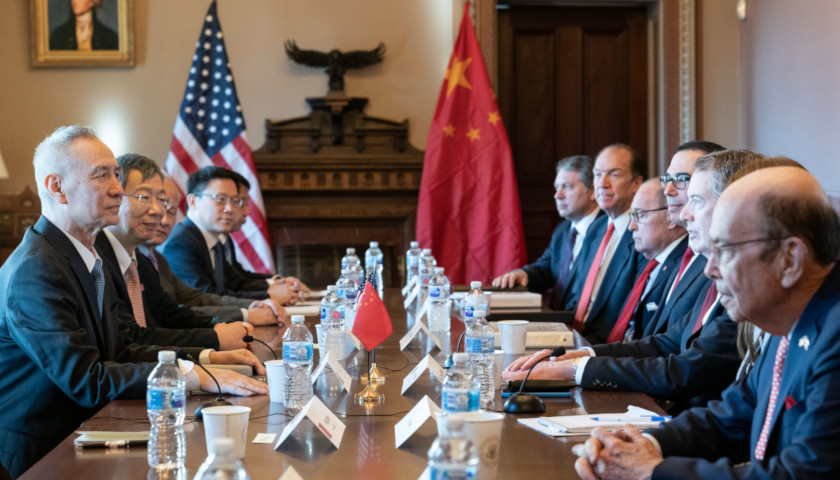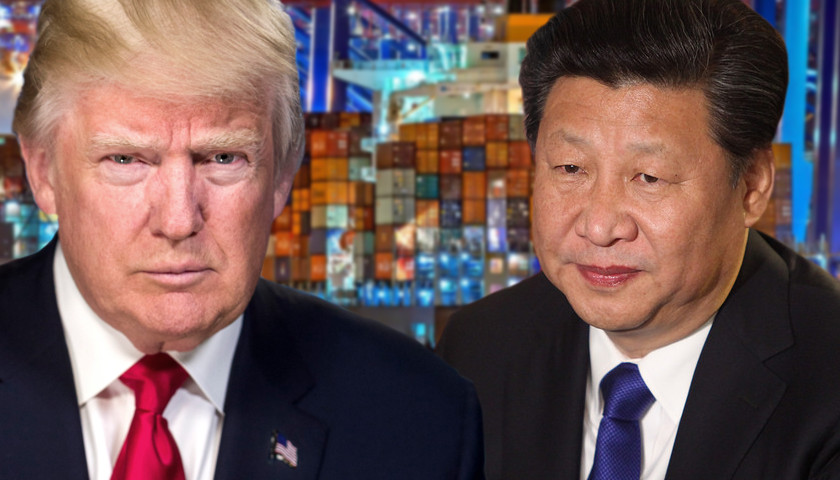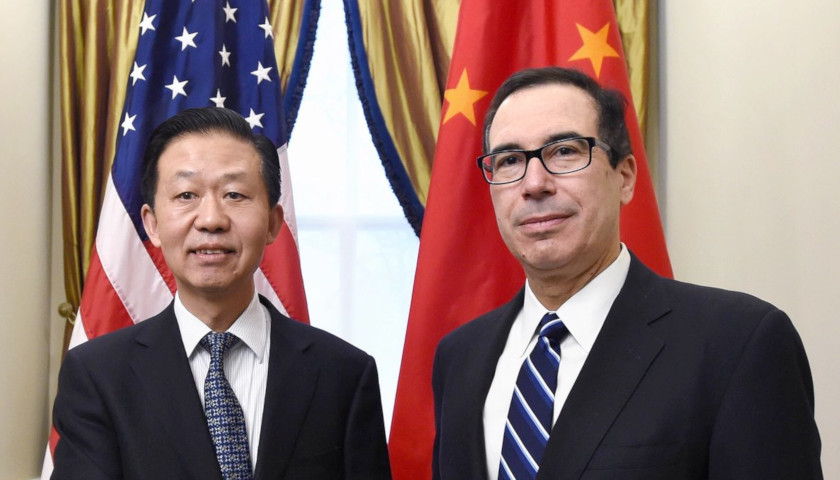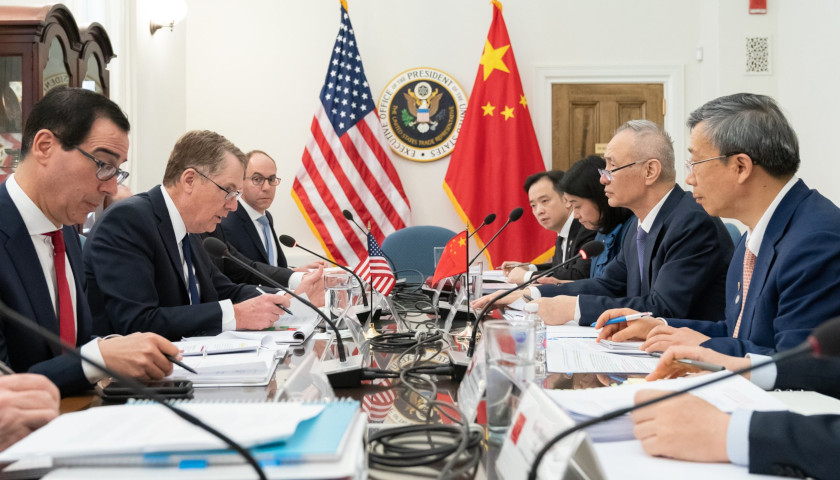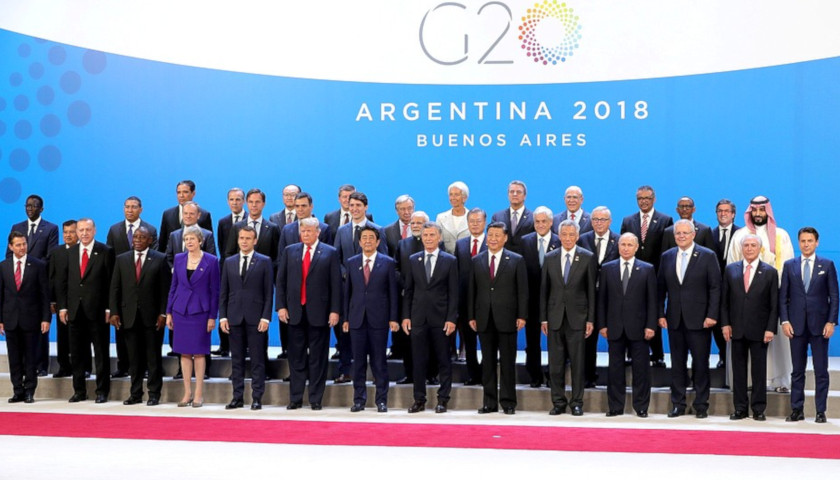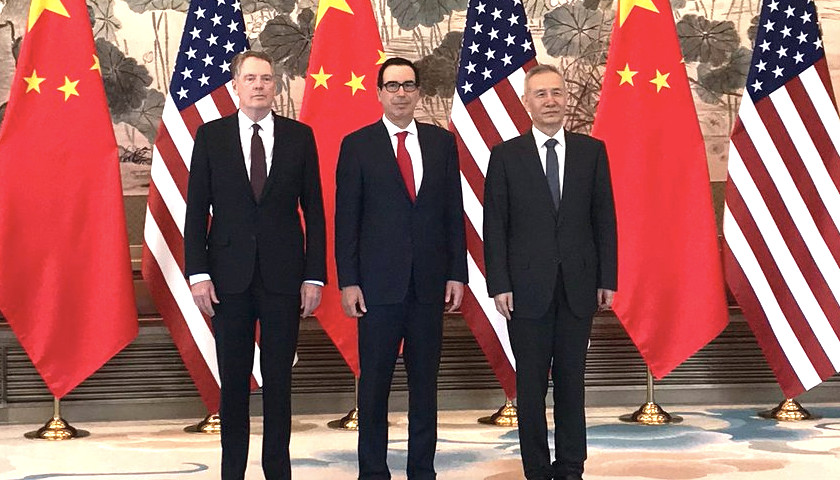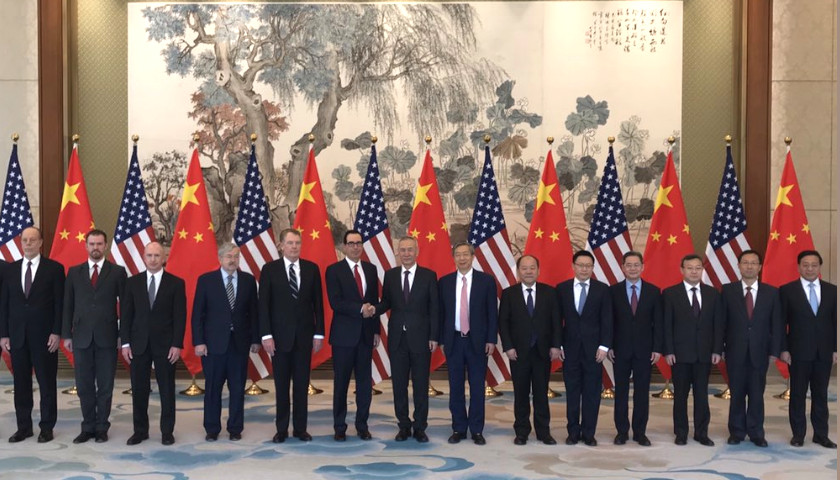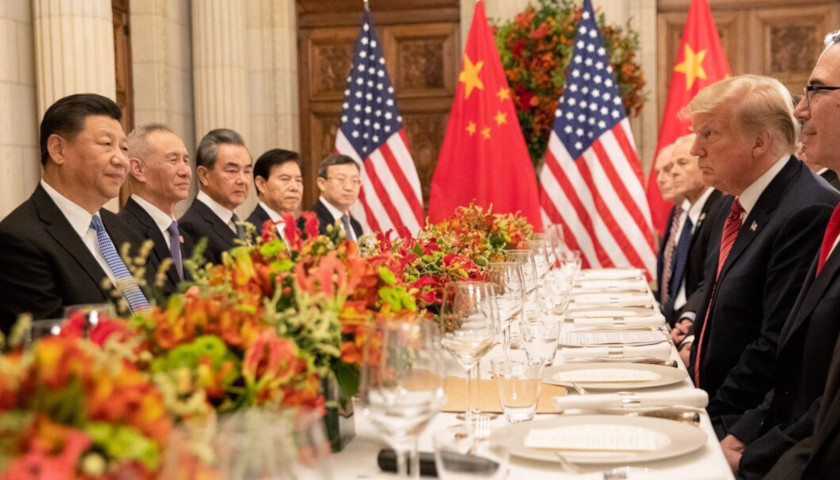The U.S. trade in goods deficit with China is down 12.8 percent in the first nine months of 2019, or $38.5 billion, compared to 2018, according to the latest data from the U.S. Census Bureau.
Read the full storyTag: Trade Talks
US, China to Hold High-Level Trade Talks in October
U.S. and Chinese envoys are to resume high-level trade talks next month, China’s Commerce Ministry said Thursday, days after the two sides announced another round of tariffs targeting each other’s exports.
Read the full storyTrump Warns China to Negotiate Trade Deal Now Rather Than Later
As U.S.-China trade talks are set to begin, U.S. President Donald Trump is warning China against negotiating a deal after the 2020 U.S. presidential election — declaring a delayed agreement would be less attractive than a deal reached in the near term.
Read the full storyUS Treasury Secretary to Hold Trade Talks in China Next Week
U.S. Treasury Steven Mnuchin says he will visit China next week for two days of talks to end the year-long trade war between the world’s two largest economies.
Read the full storyCommentary: Ahead of G-20, Currency Dominates Global Economic Landscape as Trump Blasts Chinese, European Devaluations
by Robert Romano President Donald Trump is broadening his trade message to foreign economies to include currency ahead of the G-20 meetings in Japan next week, blasting both China and Europe for competitive devaluations of the yuan and euro, respectively. On June 18, Trump tweeted, “Mario Draghi just announced more stimulus could come, which immediately dropped the Euro against the Dollar, making it unfairly easier for them to compete against the USA. They have been getting away with this for years, along with China and others.” Here, Trump is referring to European Central Bank Chairman (ECB) Mario Draghi’s statement at the ECB Forum in Sintra, Portugal on June 18 where he announced potential interest rate cuts could be on the horizon if the economy deteriorates. Besides tariffs and subsidies, the greatest weapons that economies wield against each other on the trade front are competitive devaluations, which make exports cheaper and imports more expensive. It is simultaneously a move to increase domestic consumption and boost profits from overseas. Draghi has responded that “we don’t target the exchange rate” in ECB operations, but it is worth noting that since its 2011 highs, the euro has depreciated almost 25 percent against the…
Read the full storyNew Tariffs on Chinese Products Go into Effect
The United States has increased tariffs from 10 percent to 25 percent on $200 billion worth of Chinese imports. China on Friday said it “deeply regrets” the increased tariffs and will take the “necessary countermeasures” without giving any details. The increases are going into effect amid talks between Chinese Vice Premier Liu He, U.S. Trade Representative Robert Lighthizer and U.S. Treasury Secretary Steven Mnuchin. On Thursday the U.S. and Chinese trade negotiators ended the first of two days of talks aimed at saving a trade deal even as President Donald Trump said the new “very heavy tariffs” on Chinese products would go ahead. The White House said Thursday evening that “Ambassador Lightizer and Secretary Mnuchin met with President Trump to discuss the ongoing trade negotiations with China. The ambassador and secretary then had a working dinner with Vice Premier Liu He and agreed to continue discussions tomorrow morning at USTR.” Talks on Friday Liu He is leading the Chinese negotiating team for the talks, which threatened to collapse after the Trump administration accused Beijing of backtracking. “We were getting very close to a deal, then they started to renegotiate the deal,” said Trump Thursday in the Roosevelt Room of…
Read the full storyUS Holds ‘Constructive’ Trade Talks With China
American and Chinese trade negotiators made progress during “candid and constructive discussions” in Beijing Friday, said the White House, and will continue talks in Washington next week. The two sides are working to strike a deal to lift eight-month-old tariffs affecting $250 billion of Chinese imports to the U.S., and about $110 billion of American exports to China. The latest round of talks comes amid a report by the Bureau of Economic Analysis that the U.S. trade deficit with China again rose in 2018. “The 2018 goods and services trade deficit with China alone was $379 billion. That’s $70 billion, or 23 percent, higher than in 2016. It’s more than 3 times the size of the 2018 deficit with the entire European Union. China by itself contributed 61 percent of the total US deficit both in 2016 and last year,” according to Derek Scissors, Resident Scholar of American Enterprise Institute. U.S. Treasury Secretary Steven Mnuchin, who is in Beijing, posted on Twitter that the talks will continue next week. .@USTradeRep and I concluded constructive trade talks in Beijing. I look forward to welcoming China’s Vice Premier Liu He to continue these important discussions in Washington next week. #USEmbassyChina pic.twitter.com/ikfcDZ10IL —…
Read the full storyUS-China Trade Talks Reach Critical Phase
Deal or no deal? Trade talks between the U.S. and China — the world’s two largest economies — have reached a critical phase. Yet mixed signals coming from the White House and Beijing are causing analysts to question whether President Donald Trump and his Chinese counterpart, President Xi Jinping, will be able to finalize an agreement to end a costly trade war by early April as originally predicted. White House press secretary Sarah Sanders told reporters on Monday that the two sides haven’t set a date yet for a signing summit between Trump and Xi to end the dueling tariffs that are hurting both countries’ economies. In an appearance on Fox News over the weekend, White House economic adviser Larry Kudlow said that negotiations are “making great progress.” However, last week the Chinese side reportedly canceled tentative plans to have Xi travel to President Trump’s Florida retreat, Mar-a-Lago, at the beginning of April for a signing ceremony, causing some analysts to question whether an agreement is truly imminent. Trump has repeatedly touted progress in the talks, but warned that he would pull out of the negotiations if he concluded he wasn’t getting a good enough deal. “He’s going to make…
Read the full story
